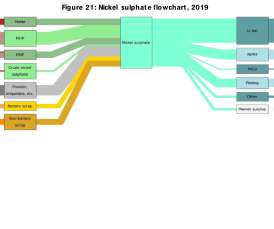Roskill: Nickel sulfate to be the key growth area of nickel demand over the next decade; driven by EVs
Green Car Congress
JUNE 2, 2020
As a crucial raw material in Li-ion batteries used to electrify vehicles, a significant volume of nickel sulfate will be required in the decade ahead from the booming automotive sector. As such, the future availability and suitability of feedstocks for the battery industry will be essential to the production of nickel sulfate.











Let's personalize your content